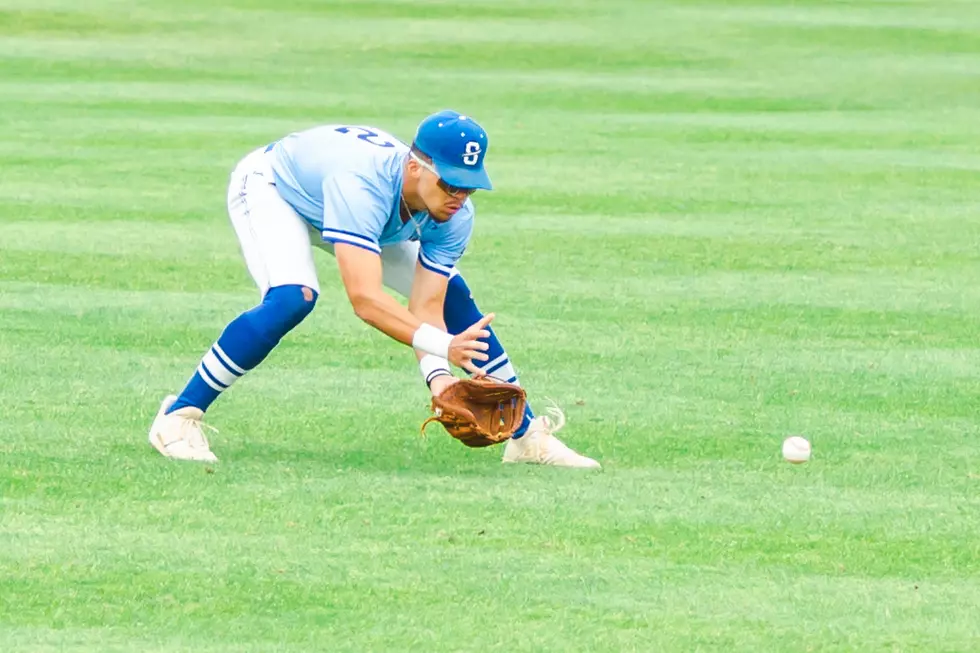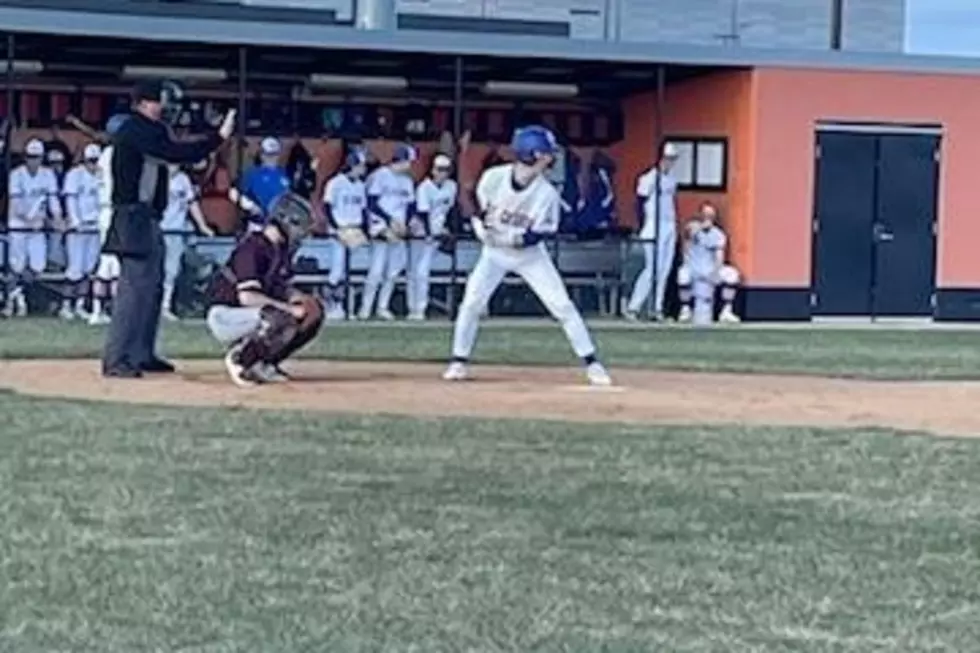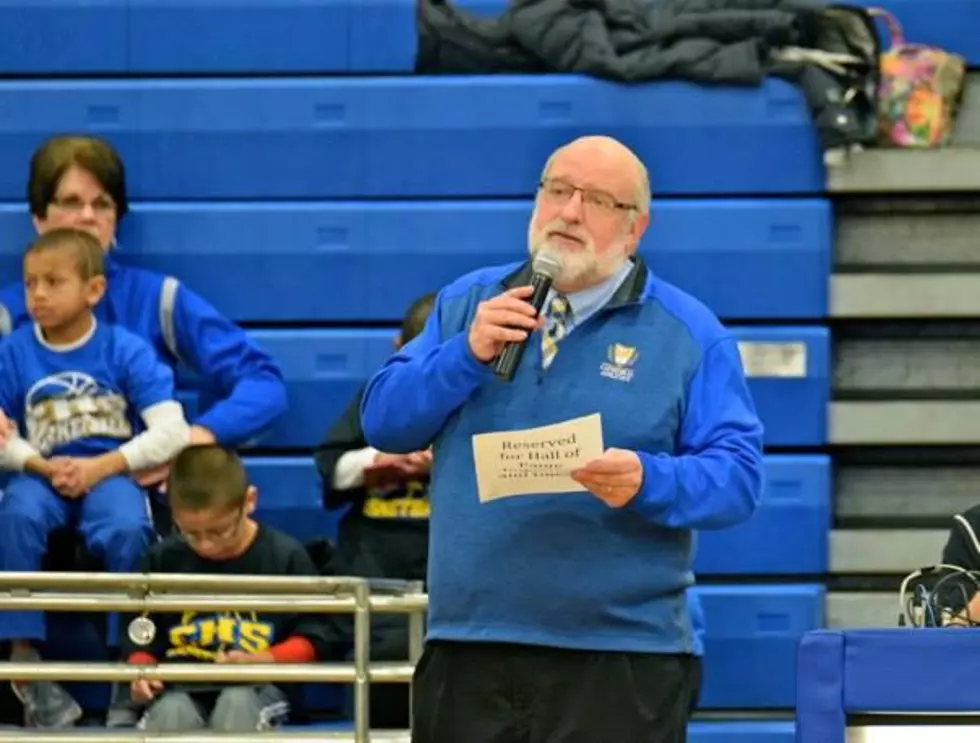![Some Thoughts On Joe Frazier [VIDEO]](http://townsquare.media/site/66/files/2011/11/3277113.jpg?w=980&q=75)
Some Thoughts On Joe Frazier [VIDEO]
In the end, I hope he was at peace.
With one person in particular.
But I doubt it.
For years, people would sit in an air of discomfort whenever "Smokin'" Joe Frazier would spout bitterly about the man he will forever be historically intertwined with.
Most notably would be Muhammad Ali's lighting of the torch at the 1996 Olympic Games in Atlanta.
For most watching, it was an inspiring, emotional, transcending moment in their lifetimes.
Smokin' Joe's take: they should've pushed him in.
Often, Frazier would skin-crawlingly take boastful credit for the current version of Ali we see today.
For years, he would refuse to refer to Ali with his chosen Muslim name instead calling him by birthname as an act of spitefullness.
I did not think Clay won that second fight.
Joe Frazier, former heavyweight champion of the world, died of liver cancer last night (November 7th) at the age of 67.
Again, for years, it was the vogue norm to suggest to Joe regarding his outright hatred of Ali get over it, Joe. It's in the past. It was all for show. To sell tickets.
"Joe never quite understood the notion of promotion", an ex colleague of mine once quipped very Ali-like.
But around the past decade or so, that school of thought began to wane.
Through new documentaries and books seen through different eyes, more attention began to be paid to Ali's treatment of Frazier throughout the seventies, rather than Frazier's post reaction to it.
All before my time: my obsession with boxing didn't form until the mid-nineties with the arrival of a very young Mike Tyson.
But I've done my homework.
The documentaries I grew up watching would all highlight the great Ali's comedic antics and taunts towards the hard nosed and self serious Frazier.
Ugly. Gorrila. Face should be donated to the Bureau of Wildlife.
And, most searingly: Uncle Tom.
As HBO blow-by-blow boxing commentator Jim Lampley said in a documentary recounting the societal impact of the first Ali-Frazier bout in 1971, "Joe seethed. You would have, too".
Slowly, people began to move away from the aplogetic explanations of "showmanship" and "promotion" and a certain movement began.
One that suggested that the universally beloved and now almost saint-like Ali could indeed be cruel, perhaps borderline sadistic.
I would hope that brought Joe at least some relief. There were, here and there, scattered public pronouncements of forgiveness to Ali (usually when financial gain was involved). Other times he'd recant.
Years back, Ali would issue an apology statement, stating that he had said some things that he shouldn't have.
But he would also add, "It was meant to promote the fight" (Frazier would once say "The tickets were all sold. It was all sold out. Why did it need promoting?").
A couple years ago, HBO would do a splendid documentary on the third - and most brutal - of the Ali-Frazier bouts, "The Thriller In Manila".
Unlike virtually any other piece regarding the subject matter, this one strictly focuses on Frazier and not his opponent.
It's a sad portrait: we see him living in a dilapidated apartment in the back of his legendary Philadelphia gym.
It's also a riveting one: we watch him as he watches the Manila bout for the very first time it was staged in 1975.
The legendary, fourteen round, see-saw battle was waged in the Phillipines in 110 degree heat.
Ali was the champion, Frazier the selected challenger.
Selected because Ali and his people believed Frazier to be shot. Damaged goods. Done.
To quote author Mark Kram, "some people never learned when it came to Joe Frazier".
The bout is also notable in that it would also dramatically contribute to Frazier's lifelong bitterness.
Leading up to the fight, Frazier's hatred of Ali had reached it's apex as Ali's vicious and relentless taunting of him had reached its own.
It'll be a thrilla, and a killa, and a chilla when I get the gorilla in Manila!
Frazier, quite literally, viewed the fight as life and death. The winner would have the final say.
And in the end, Ali, physically and emotionally spent, his showman's guard totally beaten down would emphatically state "It was the closest thing to death".
The first part of the fight belonged to Ali, the savage middle to Frazier, and, in its third stage, Ali would rebound and begin to reign down pinpoint, diabolical combinations into Frazier's swollen and blinded eyes.
In between the 14th and 15th rounds, Frazier's trainer, Eddie Futch, would tell his man "The fight's over, Joe".
"But Eddie!"
"The fight's over".
Frazier would never forgive him and would always maintain he was good to go.
I'd like to believe the great warrior was at peace with it all in the end but somehow I doubt it.
I think in the end, like most bitter people, he was more hurt than angry, simply not realizing it.
But some of the bitterness I can certainly condone: the left hook that sent Ali flying to the canvas in the 15th round of the first fight? No human being should have gotten up from that.
Joe seethed. I would have, too.
More From 103.7 The Loon









